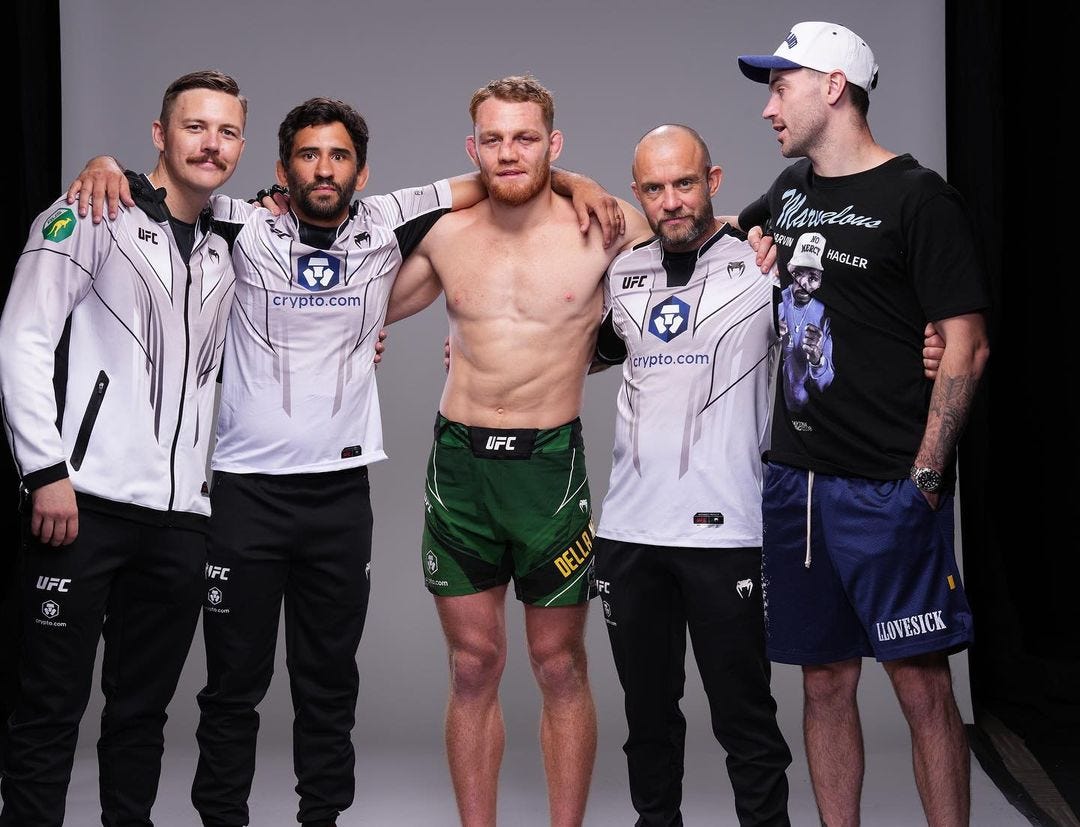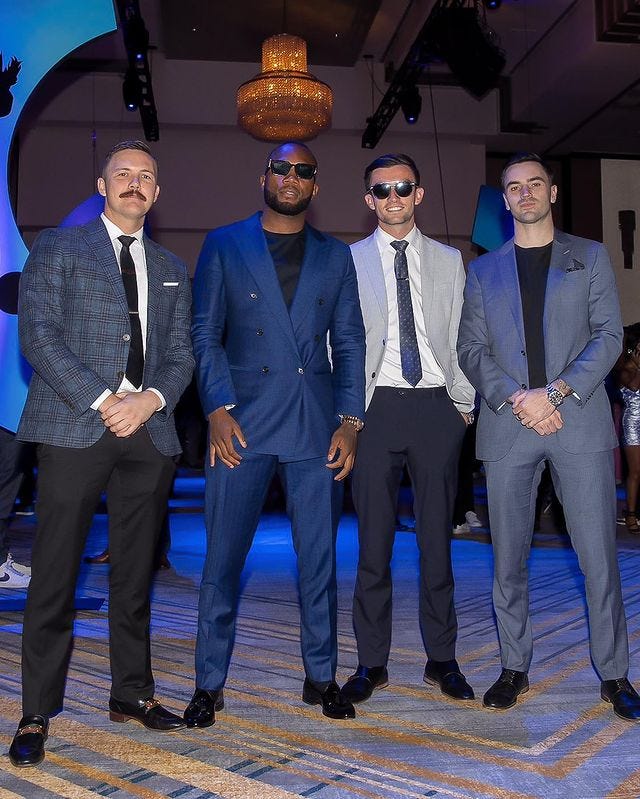What should a fighter look for in a manager? Here's what you need to know
Chosen Advisory co-founder Daniel Maudsley pulls back the curtain on fighter management
You might not have heard of Daniel Maudsley, but you will probably recognise some of his clients.
Together with Tim Simpson, he is one of the two founders of Chosen Advisory Group, who represent the likes of Israel Adesanya, Leon Edwards and Jiri Prochazka, among others.
Unlike some of his peers, Maudsley prefers to operate in the shadows. By his own admission, he doesn’t do many interviews. However, this time he’s very kindly decided to make an exception (even if he had to put up with a dodgy WiFi connection on my end!).
A qualified lawyer by trade, he practiced commercial litigation for five years before deciding to make the switch to sports management.
“My uncle had a Muay Thai gym so I started kickboxing when I was quite young,” he says.
“Funnily enough, my very first job in law I actually got through jiu-jitsu, one of the guys I trained with is a lawyer. He ended up bringing me into his firm. So I started working there in litigation.
“I did a bit of research on the MMA industry, I figured out that if I wanted to actually make a run at it, I had to get to the US at some point.
“But I also wasn’t in a rush, I wanted to get some good experience as a lawyer first, and I’m so thankful I did that because it’s made the biggest difference for me.
“Coming straight out of law school straight into management would have been tough because I wouldn’t have been able to add as much value as I can for our clients.”
It is no secret that the MMA industry can be a bit of a Wild West when it comes to fighter management with claims that some are being taking advantage of due to a lack of regulation.
Admittedly, it is unfair to tarnish everyone with the same brush, as there are scrupulous representatives out there who are doing good and honest work for their clients.
But Maudsley believes there should be some sort of legislation introduced since there is no world governing body, as anyone can be a manager so long as they convince a fighter to sign a contract with them regardless of experience.
“I don’t mean to disparage others but to be frank I don’t really understand how you can do this job particularly effectively without a legal background,” says Maudsley.
“A large part of what we do is advising clients on fighter agreements or endorsement agreements, whatever it may be, and not having the requisite legal knowledge to understand what you’re reading is something that I don’t really understand.
“I think at a minimum you’re going to add more cost to the client because they’re going to have to get it legally reviewed externally.
“Some people seem to have concerns about the value of management. But from our perspective it seems a lot of those people have had bad experiences with managers. So perhaps if there are regulations in place that may help clean up the industry a little bit and protect the athletes and that’s what I want to see happen.”
Given their impressive roster, it is perhaps not surprising to hear that both Maudsley and Simpson often get bombarded with requests from fighters wishing to come onboard.
However, the former admits they take a more selective approach to recruitment as part of their business strategy. It is in the name, after all.
“Fortunately, that’s mainly Tim’s thing,” he says.
“But no, on a serious note, I’d say our business model is very risky in a sense because we’re very selective about who we sign which invariably will mean that we’re going to miss out on some good prospects.
“But we are fortunate that we can, at least for the time being, operate on a business model where we are really able to focus on quality over quantity for our clients, whereas some of the other agencies in this space have upwards of 300, but that’s not our style.
“We don’t have a massive client list, right, so recruiting is always a tricky one, because unless it’s someone that’s ranked highly in their division already, or like a really, really blue-chip prospect, it’s unlikely that we will sign anyone outside of those two definitions.
“In saying that, though, we’re always happy to chat to fighters and give them some guidance if they have issues or get them on a regional promotion or something like that. There’s a handful of fighters in Australia, for example, who I constantly try to help get fights, nothing formal in terms of a fighter-manager relationship, but that sort of stuff we’re always happy to do. But as far as signing someone up for full-service management if you will we are super specific on who we sign and it’s for a number of reasons with the main one being capacity.”
Anderson Silva exclusive interview: UFC legend talks superheroes, fighting and retiring in Japan
“I want my last fight to be in Japan,” he tells MMA Insider on a Zoom call from the corner of his gym.
In terms of those looking for representation, Maudsley had this to say on the matter.
“The number one bit of advice is if you’re going to sign with someone get independent legal advice on the management agreement,” he says.
“That’s 100 per cent the most important thing. At the end of the day you’re signing with the manager because you’re an exceptional fighter so you don’t need to be an exceptional lawyer at the same time. It may cost you a bit of money to get a lawyer if you review it but I promise you it’s a hell of a lot cheaper than going through litigation should the relationship go sour so I think that’s probably the most important thing.
“And then outside of that, make sure that you sign with someone that you feel comfortable with and that you trust. Try and meet them in person if you can, ask them every questions you can think of, and if you’re uncomfortable with their answers don’t be in a rush. Representation is very important and I do believe that it’s necessary for athletes to maximise their economic potential but it’s also not something that you need to rush.
“So find someone that you feel comfortable with and please get independent legal advice. Even if you’re signing with Chosen, take our management agreement to a lawyer, and make sure you understand it and that you’re comfortable with it. Because, like I said, that is probably where most of the issues come from is that some athletes don’t get proper independent advice when they sign a management agreement.”








